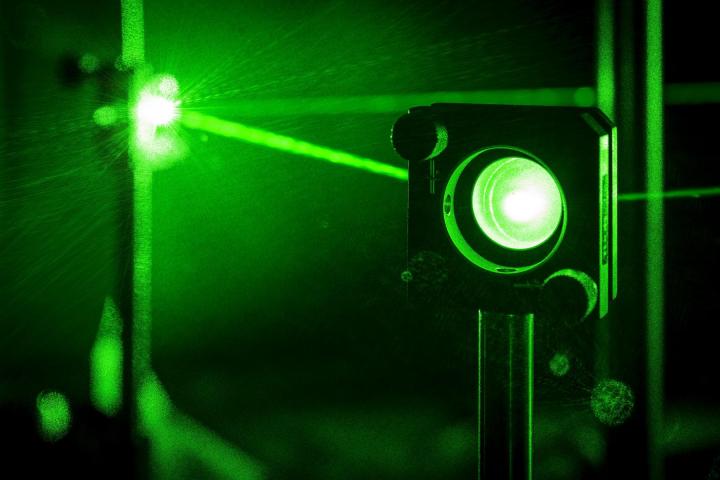
"This is by far the most comprehensive project in quantum communication in the Czech Republic, and is a significant culmination of previous decades of research, development and testing activities that have been carried out in our country or are being worked on now. That is why the participants are from the most prestigious workplaces in this field in the Czech Republic. These workplaces are not only developing cutting-edge research in the field of quantum technologies, but are also educating students in the field of quantum technologies," says Doc. Vojtěch Petráček, Rector of the Czech Technical University in Prague.
"With this step, the Czech Republic has leapt on to moving train of extremely secure quantum communication. Recognizing the potential of quantum communication and quantum technologies, the European Quantum Communication Infrastructure (EuroQCI) initiative is investing heavily in setting the network up," says Doc. Jan Bouda from FI MU, who is one of the Czech Republic’s EuroQCI sherpas.
"I am pleased that as part of this important step, the Czech Republic is joining forces with the greatest capacities in the field of quantum networks and quantum informatics. The Czech Republic can build on the high reputation of its basic research in the field of quantum technologies," adds Prof. Igor Jex, Dean of FJFI and one of the world's leading experts in quantum communication, who is a member of the strategic advisory board of the QuantERA European research consortium
EuroQCI is an initiative of the European Commission and of the 25 Member States that have signed the EuroQCI Declaration. The ultimate goal (after 2027) is to create an extremely secure communication network based on quantum key distribution (QKD) and connecting critical national and European infrastructure institutions. The current task is to build a test network, which will be created by connecting several national networks, and then to test the integration of quantum key distribution into the existing telecommunication infrastructure.
Within the Czech Republic, these activities are coordinated by Doc. Jan Bouda. A consortium of Czech universities has been entrusted with implementing the national network and connecting it with the surrounding states. The expert guarantor of the project is the National Cyber and Information Security Office (NÚKIB).
The Project of the Czech National Quantum Infrastructure will ensure: (1) Integration of the National Quantum Network into the emerging European Quantum Communication Infrastructure. Without this step, the Czech Republic would remain isolated from the European Highly Secure Communication System and would have very limited access to its technologies; (2) Development and testing of the integration of the quantum network into existing pan-European secure telecommunications systems; (3) Testing of the European Quantum Communication Infrastructure as a whole; (4) Testing the compatibility of the European Quantum Communication Infrastructure with Czech communication systems (e.g. systems for the transmission of classified information); (5) Training of future quantum network operators, experts in the development of quantum communication systems, experts in quantum networks and software, and experts in optical quantum communication; (6) Professional support and provision of a testing infrastructure for Czech industry involved in the development and production of hardware and software technologies for quantum communication; (7) Increasing the intensity of the development of quantum technologies, as well as research and development in this area in Europe. Without these steps, the Czech Republic would be at risk of strategic technological under-utilization of an area with significant growth and commercial potential, and also at risk of a significant reduction in competitiveness.
"Quantum technology and extremely secure quantum communication are areas on which all the world powers are working and which are moving from scientific laboratories out into the real world. It is no longer a question of whether we need something like this, but of when it will become the norm for communication," explains Igor Jex.
"The very principle of quantum communication practically excludes undetected interception or hacking of communications. This is the main reason why quantum communication networks are now starting to be built around the world," says Jan Bouda.
Building a quantum communication infrastructure in the Czech Republic will further encourage interest in and the development of research and development, and will further encourage scientists, and also students, to focus on the field of quantum communication. The demand for specialists in this area is already high, and it will continue to grow. The members of the consortium are convinced that the construction of a backbone network will draw the attention of the Czech public to the importance of dynamically developing quantum technologies in their broadest range, will attract investors, stimulate small technology companies and, last but not least, will strengthen the influx of young students into the fields of quantum technologies that consortium members have been offering for several years, at all levels of higher education.